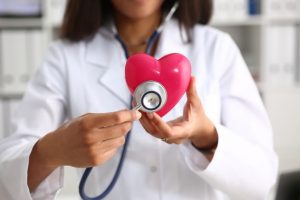
The majority of us fear to have a heart attack pretty much all the time, and for the most obvious reason – studies suggest that every 40 seconds one individual experiences an attack.
Although having a heart attack is not a pleasant situation to be in, nearly tens of thousands of individuals pull through it every year.
But when you suspect a heart attack, the best approach is to act immediately to ensure that your chances of getting out of it are greatly improved. In this article, we will talk about some vital signs of heart attack and what you can do to prevent it.
Important Signs of a Heart Attack
In most of the cases, a heart attack starts gradually with the onset of mild chest pain and discomfort. These are the two major signs that you are likely to notice before you actually experience an attack.
If you have been experiencing any of the below-mentioned symptoms, it is best to contact emergency medical care centers Weatherford right away.
These are some common signs of heart attack that you must watch out for:
- Mild discomfort in the center of your chest. This discomfort could last for more than a couple of minutes or you might feel it at regular intervals. It can be associated with mild pain, fullness, heaviness, or squeezing in the chest.
- Discomfort in your upper body like back, jaw, arms, neck, or stomach. This could either feel like normal discomfort or pain.
- Difficulty in breathing. Sometimes, you might feel this discomfort along with chest pain.
- Unexpected sensations like nausea, dizziness, cold sweat, lightheadedness, or vomiting. These symptoms are more common in women as compared to men.
What Should You Do If You Experience a Heart Attack?
Here we have mentioned the top two tips that you must consider when experiencing a heart attack.
- Call for an Ambulance Right Away
The moment you suspect a heart attack, make sure you immediately call for an ambulance. If you have others at home, ask them to stay by your side till the time the medical staff reaches the place.
Calling an ambulance is by far the best way to quickly reach a medical center, rather than driving to the hospital all by yourself. The ambulance and other medical staff are fully trained and equipped to deal with the situation. They can even take you to a hospital in no time.
But if you experience a heart attack when in a workplace or store, the chances of them having a defibrillator are very high. Defibrillators are a type of device used by the medical staff to save an individual experiencing an attack.
If you are still responsive during the onset of an attack, ask someone to get you a defibrillator. Since it has an instructions manual, even a non-medical staff can use it to revive you from an attack.
2. Take a Dose of Aspirin
During the onset of a heart attack, you can take a dose of aspirin (325mg) provided you have one at home. This is because aspirin helps you slow down the process of a blood clot and also reduces the clot’s size that has already formed.
Once the ambulance has arrived, they will quickly take you to an 24 hours emergency room in Fort Worth so that you get rapid care for the attack.
What Should You Do If You Have an Attack When Nobody’s Around?
If you experience an attack when nobody’s around you, then immediately call the medical center. As mentioned above, you can take a dose of aspirin and then open the door and lie near it. This way, it will be easier for the medical staff to find you.
Are There any Quick Ways to Prevent a Heart Attack?
While searching online, you are likely to come across thousands of articles titled ‘fast ways’ to prevent a heart attack. Know that none of these ways have proved to be effective and that it could lead to further issues like delay in receiving the right medical attention.
Therefore, it is better that you call for an ambulance and seek immediate medical intervention.
Here are two ways that you might find online, but there’s no evidence to prove them right.
- Cough CPR
The most common treatment that you’re likely to come across is cough CPR.
As per certain sources, it is suggested that deep breathing and then deep coughing can help you increase the blood pressure and improve the blood flow to the brain. It also suggests that if you have a normal heartbeat, a deep cough could help you feel normal.
But many medical centers do not endorse this treatment and for obvious reasons – cough CPR cannot be used for an unconscious person since they can’t cough.
2. Cayenne Pepper and Water
Another treatment you might find online is drinking water with cayenne pepper in it, which is again not an effective remedy.
Some studies suggest that cayenne pepper can increase your heart rate and carry blood throughout your body, whereas others suggest that it can instantly stop internal bleeding if any.
But there is no solid evidence to prove that consumption of cayenne pepper or any kind of pepper can help during an attack. Also, one does not know how cayenne pepper would react to aspirin which is usually recommended by experts when experiencing a heart attack.
How Can You Decrease the Chances of Experiencing a Heart Attack?

Here is what you can do to stop the risk of experiencing a heart attack:
- Quit smoking and also reduce exposure to secondhand smoke.
- Control your high blood pressure and high blood cholesterol by making changes to your regular diet, taking medicines on time, losing excess weight, or performing a mix of all these things.
- Keep yourself physically active throughout the day.
- Keep your weight under control, especially if you are obese or overweight.
- If you are diabetic, take additional care by strictly following your treatment and controlling the blood sugar level.
- Keep your stress under control by regularly practicing meditation techniques such as yoga, talk therapy, or deep breathing.
- Lower the consumption of alcohol.
- Eat a balanced and healthy diet that is full of vitamins and minerals.
The Bottom Line
It is not just people with existing health issues who are vulnerable to a heart attack. Studies suggest that nearly 50% of heart attack is experienced by individuals with the right cholesterol level.
That said, it is important for you to take proper care of your health and make sure you are both physically and mentally fit!

















